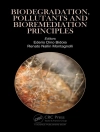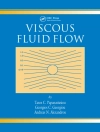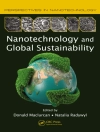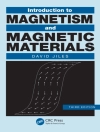An account of a three-year research program funded by the German government, in which physicists and physical chemists set off together with biologists and physicians to develop new techniques for medical and biological problems and ended up with sophisticated scientific solutions and innovative equipment, partly ready for the market. It not only includes a concise description of the new discoveries but also offers also an introduction to the various fields within optics.
विषयसूची
1 Introduction
2 Online Monitoring of Airborne Allergenic Particles
3 Online Monitoring and Identification of Bioaerosol
4 Novel Singly Labelled Probes for Identification of Microorganisms, Detection of Antibiotic Resistance Genes and Mutations, and Tumor Diagnosis
5 Early Diagnosis of Cancer
6 New Methods for Marker-free Live Cell and Tumor Analysis
7 Regenerative Surgery
8 Microarray Biochips –
Thousands of Reactions on a Small Chip
9 Hybrid Optodes
10 Digital Microscopy
11 Outlook: Further Perspectives of Biophotonics
लेखक के बारे में
Marion Strehle studied biology and chemistry at the university Würzburg where she finished her Ph D thesis 2003. During her Post Doc time at the Friedrich Schiller University Jena her research interests were focused on the development of innovative bio-spectroscopical methods for a fast, robust and very sensitive quality control of natural products. In addition to her research activities she was responsible for the public relation of the 2002 founded research framework ‘Biophotonik’, funded by the BMBF, and for the organization of the international Bunsen discussion meeting ‘Raman and IR spectroscopy in Biology and Medicine’ (2004) and the biophotonic symposium ‘Struktur und Dynamik biologischer Zellen mit optischen Methoden auf der Spur’ (2005).
Jürgen Popp received his Ph.D. in chemistry from the University of Würzburg in 1995 and joined the group of Prof. Dr. Dr. h.c. W. Kiefer, University of Würzburg, where he finished his habilitation. He became full professor at the University of Jena and Director of the Institute of Physical Chemistry. Since 2002 he has been speaker of the research framework ‘Biophotonik’ funded by the BMBF. In 2005, he became Head of the Microsystem Devision of the Institute of Physical High Technology. His work has been awarded the faculty prize of chemistry (1995), the Bayerischer Habilitationsförderpreis (1997), the Förderpreis der Würzburger Korporationen (2001), and the Kirchhoff-Bunsen award (2002).












